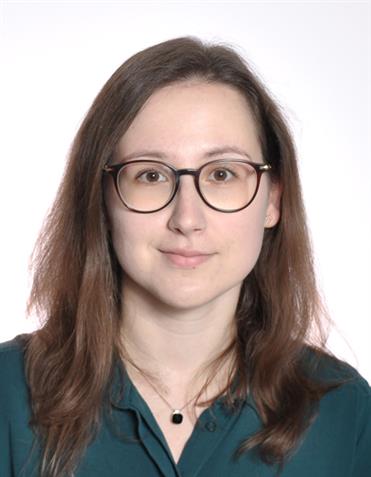

The Dementia Research Unit is a clinical research unit of the Department of Cellular Neurology and the Department of Psychiatry. It closely collaborates with the outpatient Memory Clinic.
1. Longitudinal analysis of clinical, neuropsychological, biofluid, and imaging modalities in familial Alzheimer's disease for the further understanding of sporadic Alzheimer's disease (DIAN Observational study).
2. Establish the DIAN Therapy Trials Unit (DIAN-TU) in Germany.
3. Gut microbiome in Alzheimer's disease
German DIAN and DIAN-TU participants are recruited from the local outpatient Memory Clinic and by referral from human geneticists in Germany. Blood and CSF samples are collected consistent with the international DIAN study with extra samples for and according to the guidelines of the Neuro-Biobank of the HIH and the DZNE. In addition, stool samples are collected. Neuroimaging is done at the Departments of Neuroradiology (Prof. U. Ernemann) and Nuclear Medicine (Prof. C. LaFougere) with tracers provided by the Department of Preclinical Imaging and Imaging Technology (Prof. B. Pichler). To investigate the role of the gut microbiome in AD, we have initiated the AlzBiom study, a longitudinal study examininig the intestinal microbiome at different staged of AD.
What is DIAN?
DIAN (Dominantly Inherited Alzheimer Network) is an international research partnership established 2008 in the U.S. DIAN focuses on hereditary forms of Alzheimer`s disease. Findings on the hereditary disease form will also improve our understanding of the sporadic form of the disease. Tübingen and Munich are the two German participating DIAN sites. They are both funded by the German Center for Neurodegenerative Diseases (DZNE).
What is hereditary Alzheimer's disease?
Hereditary Alzheimer's disease is caused by autosomal-dominant inherited mutations in one of the three genes APP, PSEN1, or PSEN2. Mutation carriers are 50 percent likely to pass the mutation on to each of their children. Hereditary Alzheimer's disease is extremely rare (less than 1% of all Alzheimer's disease cases) - but those who carry it have a very high chance to suffer from dementia, usually before the age of 60.
DIAN Observational Study
The aim of the DIAN Observational Study is to get a better understanding of the development of hereditary Alzheimer's disease and to advance the development of early biomarkers. Participants in the DIAN Observational Study will be examined every 12 to 24 months. The examinations include a detailed physical assessment and an interview by a physician, a detailed neuropsychological testing (with testing of memory functions and other aspects of cognitive performance), the taking of a blood sample, a lumbar puncture (collection of a cerebrospinal fluid sample), a MRI brain scan and a brain positron emission tomography scan (FDG PET/MRI and PiB PET/MRI).
DIAN Trials Unit (DIAN-TU)
Participants in the DIAN Trials Unit (DIAN-TU) will have the chance to participate in clinical trials. The aim is to test compounds thought to delay the onset or progression of the disease or even better to prevent it.
Study participation
Eligible to participate in the DIAN Observational Study or DIAN Trials Unit are persons whose biological parents or siblings have an autosomal dominant Alzheimer`s disease mutation (see above). Participants do not need to know whether they carry the gene and they may or may not show disease symptoms. The minimum age for participants is 18 years.
Support for affected families
Every year we organize a family meeting in Germany for families with hereditary Alzheimer`s disease. At these events, we share our latest research results of the DIAN Observational Study and DIAN Trials Unit and inform the families about available resources, care and legal options. Moreover, the families have time to get to know each other and exchange experiences.
With the help of the „Deutsche Alzheimergesellschaft” we created a closed online forum for DIAN families.
If you are interested in the DIAN Observational Study or DIAN Trials Unit, please contact our study coordinator Ms. Kuder-Buletta.
Contact to DIAN Tübingen
Head of DIAN Germany: Prof. Dr. Mathias Jucker
mathias.jucker@uni-tuebingen.de; phone +49 (0)7071 29-86863
Principal investigator: Prof. Dr. Christoph Laske
christoph.laske@med.uni-tuebingen.de; phone +49 (0)7071 29-83444
Study Clinician: Reda Timofejavaite
reda.timofejavaite@dzne.de; phone: +49 7071 92 54337
Study coordinator: Elke Kuder-Buletta
elke.kuder-bulettadzne.de; phone: +49 7071 92 54337
Neuropsychologist: Susanne Gräber-Sultan
susanne.graeber-sultan@dzne.de; phone: +49 7071 92 54337
More information
- Dominantly Inherited Alzheimer Network
https://dian.wustl.edu/ - German Center for Neurodegenerative Diseases
https://www.dzne.de/en/ - DIAN at the DZNE
https://www.dzne.de/en/research/studies/studien/dian/ - Online forum for DIAN members
https://www.deutsche-alzheimer.de/unser-service/foren.html
Laske C, Müller S, Munk MHJ, Honold I, Willmann M, Peter S, Schoppmeier U. Prognostic value of gut microbiome for conversion from mild cognitive impairment to Alzheimer's disease dementia within 4 years: Results from the AlzBiom Study. International Journal of Molecular Sciences 25:1906 (Abstract)
Perneczky R, Hansen N, Hofmann A, Laske C, Priller J, Grimmer T, Frölich L, Düzel E, Jessen F, Wiltfang J; German Network Memory Clinics - Diagnostic Tools Working Group. Blood-Based Biomarkers for Early Alzheimer's Disease Diagnosis in Real-World Settings. Methods Mol Biol. 2024;2785:3-14 (Abstract)
Berezhnoy G, Laske C, Trautwein C. Metabolomic profiling of CSF and blood serum elucidates general and sex-specific patterns for mild cognitive impairment and Alzheimer's disease patients. Front Aging Neurosci. 2023 Aug 24;15:1219718 (Abstract)
Laske C, Müller S, Preische O, Ruschil V, Munk MHJ, Honold I, Peter S, Schoppmeier U, Willmann M. Signature of Alzheimer's Disease in Intestinal Microbiome: Results from the AlzBiom Study. Front Aging Neurosci. 2022 Apr 19;16:792996 (Abstract)
Preische O, Schultz SA, Apel A, Kuhle J, Kaeser SA, Barro C, Gräber S, Kuder-Buletta E, LaFougere C, Laske C, Vöglein J, Levin J, Masters CL, Martins R, Schofield PR, Rossor MN, Graff-Radford NR, Salloway S Ghetti B, Ringman JM, Noble JM, Chhatwal J, Goate AM, Benzinger TLS, Morris JC, Bateman RJ, Wang G, Fagan AM, McDade EM, Gordon BA, Jucker M; Dominantly Inherited Alzheimer Network. Serum neurofilament dynamics predicts neurodegeneration and clinical progression in presymptomatic Alzheimer's disease. Nature medicine 2019; 25(2):277-283 (Abstract)
Müller S, Herde L, Preische O, Zeller A, Heymann P, Robens S, Elbing U, Laske C. Diagnostic value of digital clock drawing test in comparison with CERAD neuropsychological battery total score for discrimination of patients in the early course of Alzheimer's disease from healthy individuals. Sci Rep 2019 Mar 5; 9(1):3543 (Abstract)












